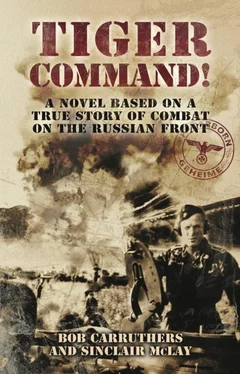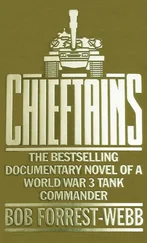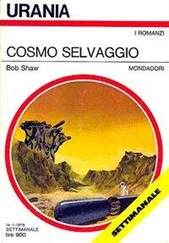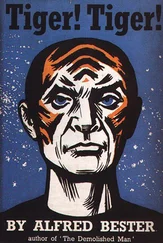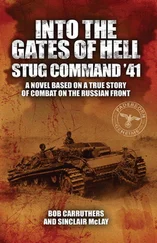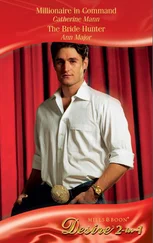Die Wundertüte was generously provided with plenty of illustrations of young ladies, most of them in a state of undress. Wohl was soon lost in contemplation as he leafed through the magazine. His favourite strip was “The Little King”, and there came the odd small laugh as he lost himself in the comic antics. He paused at page thirty-three to study a cartoon which depicted four ghosts peering through a window at the seductive form of a naked young woman, and laughed sympathetically at the ghost turning to his colleague with the sentiment that it was not so bad being dead after all. “You could be right,” thought Wohl to himself as he settled down to study the little magazine once again.
As the morning wore on, Wohl was soon lost in Die Wundertüte. Unfortunately, other eyes were concentrated upon him and, shortly afterwards, the telephone on the desk of Major Jurgen Rondorf started to ring.
“Rondorf speaking.”
“Good morning, Major Rondorf,” came a strange voice. “Oberstleutnant i.G. Borgmann calling from Führer headquarters, Rastenburg.”
Rondorf was immediately alert to the range of possibilities. “How may I help you, Oberstleutnant?”
“You can help me by turning to your left and looking out of your window.”
From his office window, Rondorf had a clear view of the ground down to the river. He could see nothing remarkable.
“You have me at a disadvantage… What am I supposed to be looking at?”
“Do you not see the figure by the tree? Maybe the binoculars would help.”
With the aid of his trusted Zeiss binoculars Rondorf was soon able to identify Wohl, and was able to make out the name of Wohl’s reading matter… Die Wundertüte.
“I see the problem now, Oberstleutnant.”
“I’m glad to hear it. We need only the best men in the Tiger crews. I trust you will deal with the matter accordingly.”
“You can count on me, Oberstleutnant.”
Rondorf replaced the receiver and sat in stunned silence. “Rastenburg was calling him? How? How could they know what a single lowly Panzerschütze was up to?”
One thought immediately sprang to mind and Rondorf’s mind was a blur of acronyms. RSHA? SD? Or GESTAPO? He quickly ruled out the SD, he got the feeling an arrest would follow. This had to be Gestapo work. As commanding officer they’d need his authority though, so he would soon know.
Four hours later, seated at their classroom-style desks, four men scribbled quickly, occasionally staring into space to collect their thoughts and find the right phrasing for their answers. Not so the fifth man, Otto Wohl, whose deeply furrowed brow dripped sweat onto a half-finished and much-amended paper with most of its answers crossed out, re-crossed out, and then crossed out again… and the rest left blank. He had started out well, and initially the answers flowed as he scratched out each response in his untutored hand, consisting of block capitals.
Q1. What do you do with shells with fractures or dents?
THROW THEM OUT.
Q2. What do you do with shells with a marred rotating band?
THROW THEM OUT.
Q3. What do you do with shells with leaking explosive?
THROW THEM OUT.
Q4. What do you do with shells without base plates or crimping?
THROW THEM OUT.
Shell identification was straightforward too:
Q5. Anti-tank grenade no 39 is what colour?
BLACK WITH WHITE TIP.
Q6. Anti-tank grenade no 40 is what colour?
BLACK.
Q7. HL Grenade is what colour?
GREY.
Q8. High-explosive shell is what colour?
YELLOW.
So far so good, but then came questions on the cannon. He knew the answers◦– he just couldn’t remember them! Damn! He should have been more prepared! Was this supposed to be kindergarten? His head was spinning, and he declared to himself that facing a half-dozen T-34s was easier than this. So great were his tribulations that he didn’t even reach the questions on turret trouble, let alone answer them.
All too soon Major Rondorf rang the bell and then collected the papers.
Otto Wohl let out a huge sigh of relief. “Thank God that is over! Just put me in the tank and get all these schoolboy exams away from me!”
*
Korsak sat in the murky gloom of the forward command dugout and reflected quietly on his situation. Outside, behind the clouds, the moon waxed towards the full. The stars were screened by the ominously dark clouds which seemed to conspire to suck the life out of the few flares that climbed into the night sky. Other than the distant chatter of a lone machine gun, it seemed as if the whole front had succumbed to darkness and lethargy.
Korsak knew that he needed to do something to regain his reputation, and quickly, but his companion in the dugout offered no immediate sign of hope. Slumped over his table and feeling extremely sorry for himself, Major Leonid Naminsky stirred and poured himself another tumbler of vodka. Korsak was all too aware that two major setbacks in a few days meant that he was dicing with death. He was viewed with extreme suspicion by Major Naminsky, the local commander, who knew that he had to tread carefully. Korsak could almost feel the legend of the invincible White Devil deflating day by day.
As each day passed, Naminsky grew just slightly less deferential. He was clearly no longer intimidated by Korsak, or he would not have had the temerity to pour a fifth glass of vodka. But Naminsky had his own troubles and, although he hardly glanced at it himself, he was very willing to share his intelligence with the legendary Comrade Korsak.
With time running against him, Korsak devoured the intelligence reports which Major Naminsky had brought with him. They conveyed very little of value, other than the fact that the same SS unit which had caused him so much embarrassment now defended two important hills immediately in front of the Russian lines. From these hills, the fascists obviously had good observation of the Russian forward positions. As a result, the Soviet positions were continually kept under highly effective harassing fire which was causing an alarmingly high rate of casualties. Korsak was painfully aware that the bold attempts of the Soviet infantry to capture the hills by advancing in a human wave had been completely in vain. As a result of these failures, Naminsky was now terrified of what might happen to his own neck. They needed each other. The commander needed a success to save his skin, and Dimitri Korsak needed a result to save his reputation.
In the stuttering light of a candle, while Naminsky fretted and helped himself to another calming measure of vodka, Korsak wracked his brain once more and agonised for a solution which would win the heights and restore his reputation.
Tired of waiting for an answer, Naminsky took out his pistol and put it to his temple. “Come, Comrade Korsak, give me some help, or there’s only one way out for me…”
“Stop drinking that shit and you might be able to think straight,” came the blunt reply. “Wars aren’t won by idiots who feel sorry for themselves,” added Korsak with mounting venom. “You don’t deserve help, but I have decided that the best solution is to attack at night, with my tanks and what’s left of your infantry. We attack under cover of darkness, it’s the only hope we’ve got.”
“It’s no use, because…” began Naminsky. He got no further with his opening statement as he was suddenly seized and pinned against the wall by the snarling Korsak. Naminsky felt the unmistakable caress of cold steel against his throat. The razor-sharp blade drew a few drops as Korsak pressed close, the fug of alcohol-tainted breath now issuing in short blasts from the terrified Naminsky.
“You really are a cowardly snivelling louse,” hissed Korsak. “I could have you shot or cut your throat now… You don’t even take the time to understand the intelligence reports. If you did, you’d know they reveal that the fascist system of defence is based on the establishment of a series of separate firing points which mutually support each other. The defences are well planned. The distinguishing characteristic is the irregularity of the pattern of layout. They were designed by a wily old fox named SS-Sturmbannführer Helmut Voss. They are effective, but his resources are being stretched thin. A wide front has been covered very economically by establishing these firing points, but it is not invulnerable. They are placed along two general lines; some have embrasures and overhead cover while others are open. At distances from 50 to 200 metres to the rear are dugouts used for rest purposes, or for protection from artillery and machine-gun fire.”
Читать дальше
